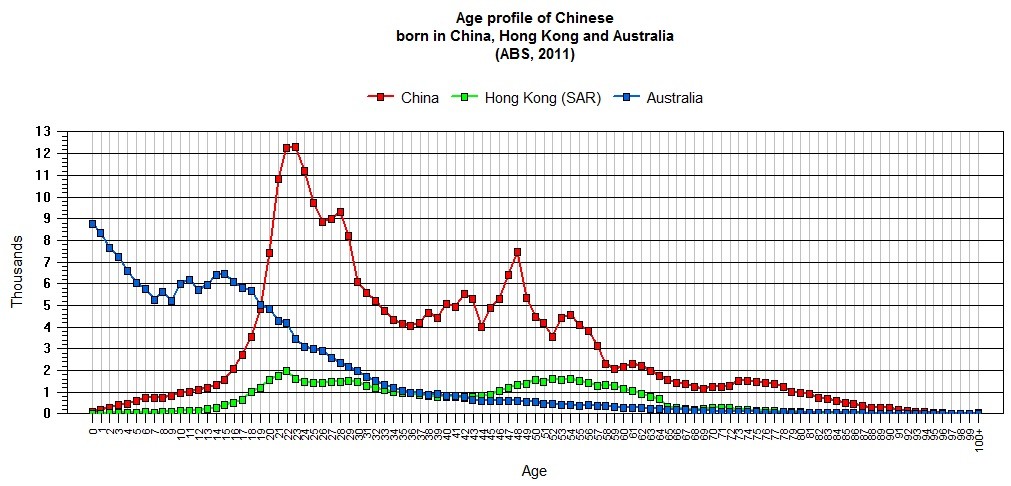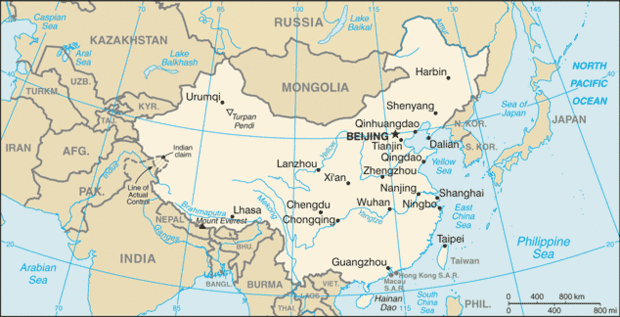Profile of China
Post on: 15 Апрель, 2015 No Comment

Country Business Practice Profile
1. Relationship of Practitioner to Buyers and Sellers — What defines the legal obligations between the practitioner and the party — i.e. is there an equivalent of agency or is there something else? Are contracts with the buyer, seller or both? Are contracts typically written or verbal? Are contracts mandatory? Are there other types of relationships between real estate practitioners and the consumer that are not agency based e.g. facilitator?
There is an agency relationship between sellers and the agents who assist in real estate sales or lease processes. Usually, the contracts are with both buyers and sellers. A sales contract is typically in writing. All sales contracts are mandatory. Model contracts are often available for downloads at various web sites including those from local government agencies and associations.
2. Services Are services primarily to assist in the purchase or sale of real property? Rental and/or leasing? What services are provided by the real estate practitioner to sellers and buyers of real property? Consulting? Investment advising? What type of services exist to assist the buyer in decision support, e.g. profit analysis, tax advisement, environmental hazards, tenant information, etc.?
Services mainly include providing assistance in the purchase or sale or rental/leasing of real property. Practitioners usually offer their services in relating to their buying or selling activities of real properties. Some agents provide consulting or other related services to their clients. Real estate practitioners seldom provide services in support of their clients decision making though more and more agents have realized the importance of providing more value-added services to satisfy their clients needs.
3. Remuneration How is remuneration paid in a transaction? And by whom? What is the method of payment (e.g. commission, fee etc.). When does payment occur? How are funds controlled in real estate transactions? And by whom? Are there any statutory restrictions on remuneration? How is payment made if the broker is not involved in the actual transaction, but only in counseling or advisement services?
Remuneration is required to be shared by buyers and sellers in the form of commission after a transaction is closed though usually sellers pay the commission due to the. The government sets a cap on the commission payment and requires both sides share the commission. Each region has its own commission rate usually lower than 3.5 percent of the sales price paid by both sides. In normal case, a buyer pays half the commission and the seller the other although a buyer could be asked to cover the commission alone at a heated market. Some agents may generate more income by offering other services in addition to the commission. No payment would be collected by the broker for counseling or advisement services unless an agreement is reached before hand.
4. Entrance/Statutory/Licensing Requirements What are the entrance requirements for a real estate practitioner? What education, courses, certifications etc. are required? Is there mandatory continuing education? Can a practitioner market properties anywhere in the country? Are there regional/local etc. restrictions? Can a non-resident market properties? Who regulates the industry and how? Do you need to be licensed and how often are licenses renewed?
In China, real estate practitioners are required to have a license when helping clients in their property purchasing or leasing. No one can practice real estate brokerage business without a broker license according to Urban Real Estate Agency Service Administration by Ministry of Construction 1996. No mandatory continuing education exists at this moment though real estate broker associations often provide some training classes to help renew agents expertise. A brokerage firm may market its properties anywhere in the country. Right now, there are no clear restrictions on non-residents marketing. The real estate industry is primarily regulated by Real Estate Division under the Ministry of Construction.
Currently there exist several licensing systems for real estate agents in China. The nationwide broker licensing system started in December 2001 by joint efforts from the Ministry of Construction and Ministry of Personnel while the first licensing exam was officially launched in October 2002. This system requires a candidate to have possessed sales assistant license unless he/she took the exam prior to 2005 and have met following prerequisites before taking the exam:
Six-year working experience including 3 years in real estate business and held a 2-year college degree;
Four-year experience including 2 years in real estate business and held a bachelor degree;
Three-year working experience including 1 year in real estate business and held two Bachelor degrees;
Two-year working experience including 1 year in real estate business and held a Master degree;
One-year working experience in real estate business with a PhD degree.
In several major cities like Beijing, Shanghai, and a few others, local broker associations also administer a licensing system set up in 80s or 90s. This system provides licensing needs mainly at the sales assistants level and meets requirements in setting up a real estate brokerage (four or five licensed agents are generally required by local Industrial and Commercial Administrative Bureau when forming a brokerage company).
A third licensing system by the Ministry of Labor and Social Security and NAR began in operation in June 2005. This joint certification is intended to provide basic real estate sales training to real estate agents in China. Trainees who successfully completed a GRI based curriculum would receive two certificates, one is from MOLSS and the other NAR.
5. Marketing System Does a marketing system exist? Is it manual? Computerized? Local/regional/national in scope? Are any marketing systems web based? What types of properties are included residential, commercial? Sale or rental? Are these systems proprietary? Who has access to and who operates any marketing systems? Are commercial properties organized separately from residential?
In China, developers are often big players because most of the housing projects sold in the market are new homes. Sales volume for existing homes has less than 50 percent of the market share in major local markets. Shanghai and Shenzhen are the two cities where the figure for existing home sales barely reached 50 percent.
No nationwide marketing system exists though many web sites claim or appear to have national coverage. Information on property sales and rental is displayed in many web sites, some of which are local coverage and others national. These sites are either operated by government housing authorities, associations, or private companies. There are rarely distinctive commercial or residential sites.
6. Practitioner Dispute Resolution System Is there a mechanism, other than through the legal system, to adjudicate remuneration disputes between real estate practitioners?
There is basically no dispute resolution system existing among real estate agents. They typically go to government authorities or courts looking for help if dispute occurs.
7. Referral Systems Is there a national referral system? Are referrals commonplace? Are most companies locally based or national? Are these companies involved in other business activities in addition to real estate? Are referrals regulated in any manner?
China is an open listing country. No national referral system exists now. Resource sharing and referral fees appear to be used only within a company itself. Referrals are not commonplace and real estate agents have to work on their own unless they know someone well enough to trust. Most real estate agencies are locally based even though there are some nationwide or international chains available. By and large these companies are engaged in real estate sales or rental business.
8. Foreign Ownership Is there legislation that restricts foreign investment/ownership of real properties? If so, how?
Ownership of real property for foreign nationals is allowed. However, a recent policy on the purchase of residential properties states that foreigners need to have at least one-year work or residency permit before he/she can purchase and own a real property for their self usage in China. The purpose of the regulation is to slow down over-heating housing market because about 50 percent of high end properties in big cities were bought by foreign nationals (mainly overseas Chinese including residents from Taiwan, Hong Kong and other regions) according to statistics. The government believes that one of the major reasons for the rapid rising of home price was caused by foreign speculators who bought and sold properties quickly, pushing up the price.
9. Land Registration System What is the nature of any system for registration of property ownership? Is it computerized? Who runs it and who has access?
China is a leasehold country, i.e. people cannot own the land. They can only buy the right to
use the land. The land belongs to the public, similar as the one in Hong Kong or some parts

of Hawaii. The land-use right is sold to developers and users by means of public auction, bid,
or agreement by land administration departments at different levels representing the
government. Depending on the type of land usage, the maximum term of a land grant ranges
from 40 years for commercial usage, 50 years for industrial purpose, to 70 years for
residential use.
The recently passed Property Law allows the automatic renewal of the land usage when the right to use the land expires. So residents living in a home no longer need to worry about when or how to renew the land usage right when the lease expires, though a tax or fee may be levied. In addition, a new property tax is under preparation and may take effect in about 10 selected cities in 2008. One of the purposes for the new tax is to increase the cost of keeping a property and attach further financial burdens for those who try to own more than one home.
10. Other Industry Professionals — Are there other professions directly involved with and being paid for the sale/rental of real estate? Can lawyers sell properties? Are lawyers, notaries or other professionals required to be involved to complete real estate transactions?
Not many other professionals are directly involved in the real estate sales or rental though lawyers and appraisers may help clients in their purchase and financing application processes. Sometimes real estate agents charge extra fees by assisting clients with their property registration and other needed services such as title exchange.
Discipline/Code of Ethics Does some form of Code of Ethics exist? Is there an
internal discipline process? Who is responsible for its enforcement?
National and local real estate associations often have their own rules or policies that sometimes consist of code of ethics. The enforcement of the Code of Ethics varies and often fall into the hands of local consumer associations.














